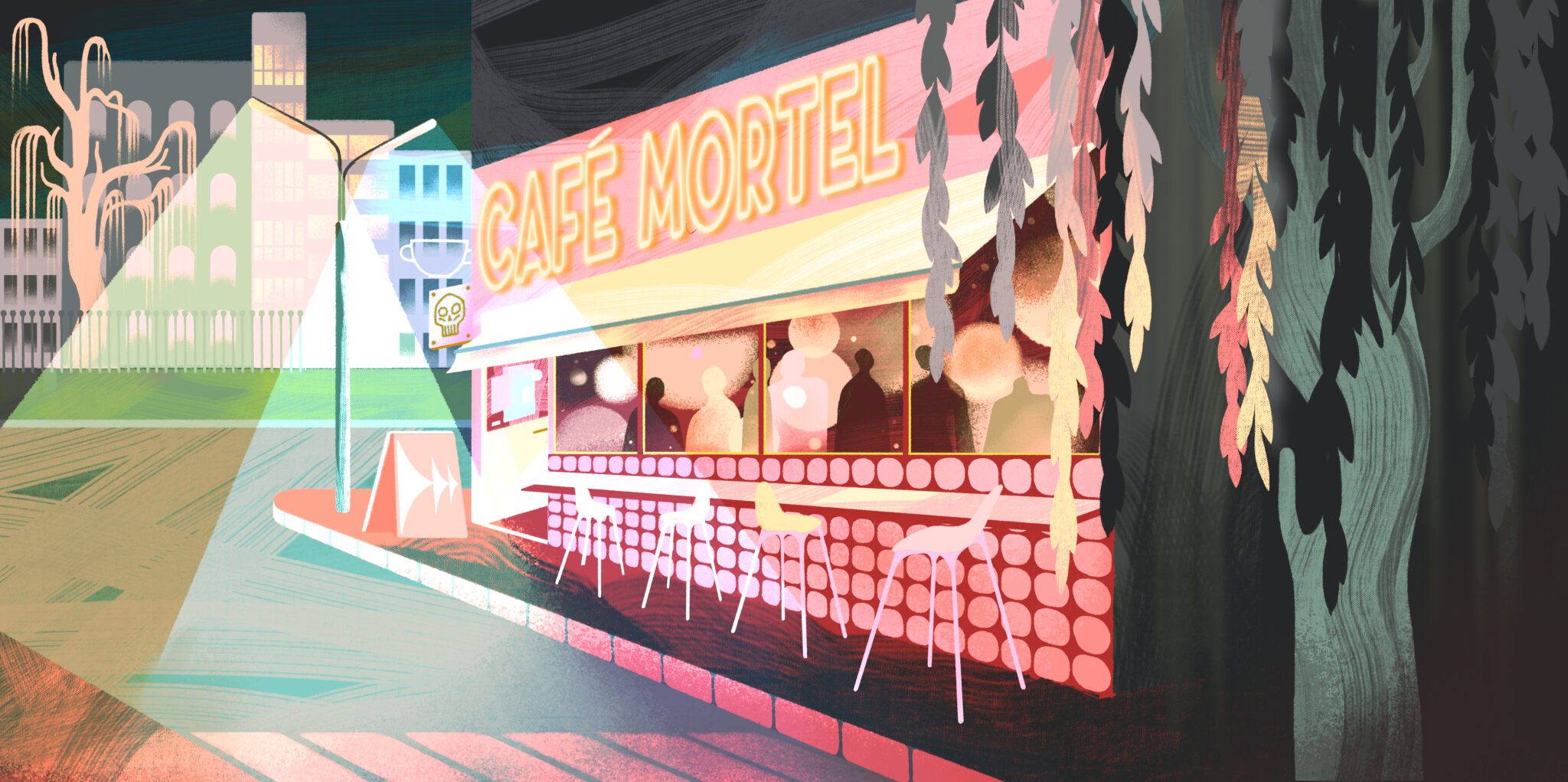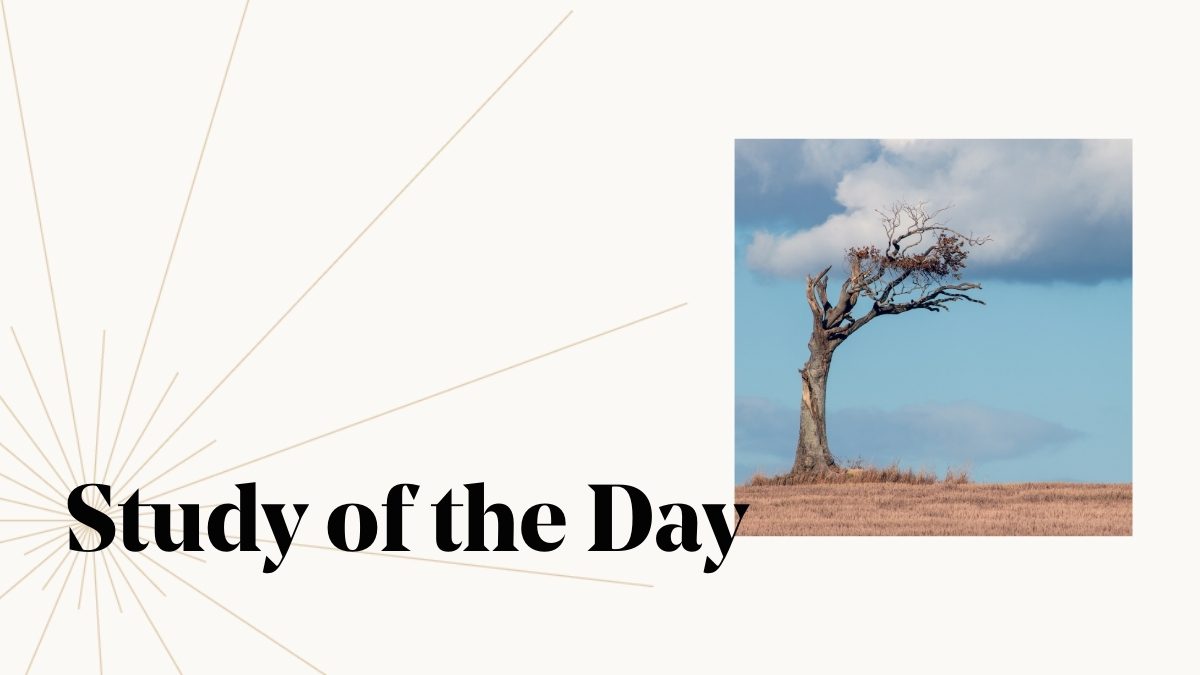Humans are exceptional at ignoring our impending deaths. Who wants to spend time contemplating the end of everything we know and love? Death is the greatest question mark, a foreign land from which no postcards are sent and no visitors return.
None of us knows how much—or how little—time we have, yet most people move through life as though death were a far-off abstraction. This is necessary, to some degree. Keeping a constant eye on the end would make life both unbearably sweet and sad. But to ignore the fact that we don’t get infinite days is also dangerous.
Denying our finitude makes us careless with time.
It leads to wasting what the poet Mary Oliver memorably called “your one wild and precious life.”
Three texts—one written by a Roman Stoic, one by a contemporary philosopher, and one by an unnamed Jewish author—understand death as a source of life’s meaning. They advocate for a way of life which keeps the reality of death in mind, not by fixating or denying it, but by allowing time’s limits to guide our choices.
How death deepens life
“It is not that we have a short time to live, but that we waste a lot of it,” wrote Seneca in his book On the Shortness of Life. The Stoic philosopher was speaking from the world of Ancient Rome, yet his words are as potent today as two millennia ago. Even though time is our most precious resource we spend it thoughtlessly, dumping out bucketfuls in service of doomscrolling and ruminating and completing trivial tasks. Seneca’s warning against wasting our days “in heedless luxury” or spending them “on no good activity” reads even more urgently in a culture of overconsumption, chronic busyness, and constant online activity. We risk letting our days drain away like water through a sieve.
The problem is not that life is short, the Stoic argues; the problem is that we waste time without remembering that our days are numbered. “Life is long enough, and a sufficiently generous amount has been given to us for the highest achievements if it were all well invested,” Seneca writes. The problem is that time is often not well invested. Too many people come to grips with mortality only when death is bearing down on them. And at this point, it’s too late to invest their hours in the things that matter most.
Better, then, to “drink quickly as though from a rapid stream that will not always flow.”
Better to remember death in the present, and to make the most of life while we still live. This is the wisdom of memento mori: Latin for “remember you must die.” The concept has roots in Stoicism, as well as Jewish and Christian scriptures. As Seneca argues, remembering our mortality can paradoxically make our brief lives feel richer and fuller—perhaps even longer. In this way, death deepens life.
Essentially short and limited
In the wake of the pandemic, philosopher Dean Rickles wrote a slim book titled Life is Short: An Appropriately Brief Guide to Making It More Meaningful. The book is a conversation with—and a rebuttal to—Seneca’s famous work. While the Stoic believed that life was “long enough” if used wisely, Rickles argues that life is inescapably short, and that coming to terms with its brevity can imbue our days with more meaning.
“Seneca doesn’t have this notion that the shortness is essential,” says Rickles, who teaches history and philosophy of modern physics at the University of Sydney in Australia. Seneca’s thesis is less that life is brief and more that it is badly used. People complain about not having enough time, and yet they live their days without intention. Rickles argues that the human lifespan needs to be short—“maybe not as short as it actually is,” he adds, laughing, “but short enough … for [our] decisions to have meaning.” Life’s brevity, in other words, is what pushes us to craft a meaningful existence.
Without death, our choices become meaningless. “When you’re choosing, there has to be a sacrifice of other possibilities in order to have meaning,” explains Rickles. If our time is limitless, our options are effectively limitless as well, and we lose the purpose and agency that stems from actively shaping our lives. A life without limits, as he writes, “can produce only a stagnant pond.”
It’s possible to drift one’s way through life as though on a raft down a slow-moving river. But the forward march of time, nature, and other people’s decisions will still limit your options for you. The way to wring fulfillment and purpose from life, Rickles argues, is to take responsibility for shaping our own path. We need to choose one path over another and know the weight of that decision, because we won’t get the chance to go back and try the other path.
Death’s gift is that it makes our choices matter.
“If you make [a choice] with the end point in mind—death is on the horizon—then I think that gives them a lot more weight. It’s the very least trivial reason for making choices,” says Rickles. Death is an unstoppable period mark to the sentence of every life. This inescapable constraint means that we can’t do everything. What we choose to do, then, matters greatly.
Chasing the wind
Tucked toward the end of the Hebrew Bible (or the Old Testament for Christians) we find a book of wisdom literature that reads less like advice and more like a collection of koans: cryptic, paradoxical, and provoking. Ecclesiastes is a difficult book that resists easy interpretation. The sayings contained in its twelve chapters turn back on themselves, sometimes advocating for joy and sometimes dismissing all of life as meaningless.
In the opening chapter, the primary speaker in Ecclesiastes—identified only as “the Teacher”—seems to adopt a bleak outlook. “Meaningless! Meaningless!” says the Teacher. “Utterly meaningless! Everything is meaningless” (Ecc. 1:2). He then goes on to elaborate all of the meaningless parts of life. These include, but are not limited to, wisdom, laughter, pleasure, and labor.
But as biblical scholars point out, that the word “meaningless” doesn’t quite capture the original Hebrew word hevel, which refers to vapor or smoke. The teacher uses this word again and again, painting a picture of how brief and ephemeral our life on earth is. The idea of vapor also gets at the impossibility of grasping the meaning behind certain events. Maybe the Teacher is not lamenting that life lacks any meaning, but rather that humans can’t apprehend that meaning. As Rabbi Shai Held, Bible scholar and President at the Hadar Institute, puts it, “There may well be meaning but it is inaccessible to us, unknowable by us.”
God may have “set eternity in the human heart,” says the Teacher in verse 3:11, “yet no one can fathom what God has done from beginning to end.”
Later in the book, the Teacher seems to contradict his earlier statements. Rather than dismissing human work and pleasure as meaningless, he affirms that God has made everything “beautiful in its time,” and advises the reader to take joy in the gifts of God. “I know that there is nothing better for people than to be happy and to do good while they live. That each of them may eat and drink, and find satisfaction in all their toil—this is the gift of God.” (3:12-13).
Is life’s brevity a reason to despair? Paradoxically, it might be a reason to delight. As the book goes on, the Teacher reminds the reader not to waste their life on things that won’t last, or to worry about what will pass away. It’s not so much that life itself is meaningless, but that its deepest meaning is beyond our understanding. We may not find answers to life’s deepest questions but we can still delight in the single, brief life that we’ve been given.
“Life is fleeting, meaning is elusive, but pleasure is nevertheless possible, and real,” summarizes Held. “And, mysterious and elusive as the God of this book is, pleasure in life—and specifically pleasure in and from our labor—is a divine gift.”
This pleasure, the Ecclesiastes’ Teacher tells his reader, is heightened by remembering the temporary state of our lives. When we accept the hevel-ness of life—that is, how brief it is, and also how impossible to control or predict, we are free to enjoy the life we have, imperfect and marked by sorrow as it may be.
Your future self is you
Seneca, Rickles, and the Teacher of Ecclesiastes share an understanding that a clear-eyed view of death leads to a richer, more meaningful life. But the three convergent perspectives draw from different rationales. For example, both Seneca and Ecclesiastes On the Shortness of Life are memento mori texts. Yet Ecclesiastes is undergirded by the understanding that God created and ordered the universe as well as each human life. The Teacher’s ultimate reminder is not to “remember death” before growing old but instead to “remember your Creator” beginning in youth (12:1).
Seneca and Ecclesiastes emphasize living in the present. Both books advocate for “a childlike immersion [in] the current state of being,” says Rickles. They advise their reader to make the most of the immediate moment. After all, who knows how many days are left? For his part, Seneca points out the futility of planning for the future when the future is not guaranteed: “You will hear many men saying: ‘When I am fifty I shall retire into leisure; when I am sixty I shall give up public duties.’ And what guarantee do you have of a longer life?” Don’t overdo your planning and preparation for a day that might never arrive, he seems to be saying.
But for Rickles, this perspective can tip into future denial. “If you’re viewing your future selves as disconnected to you, then you’re less likely to act accordingly to make a better existence for that future self,” says Rickles. “You have no reason to be better to future humans, for example, or to the future of the planet.”
So here’s a bit of wisdom from someone used to thinking about death: “People view there being a disconnect between their present self and future self,” Rickles says. Yet all of these different selves are just one self—you—spread out across time. The future will be your present some day.
If you allow that truth to shape your present decisions, you’ll act in ways that mold a future world into a more beautiful version of itself.
Stoicism, Jewish wisdom literature, and contemporary philosophy all offer guidance for making the most of our time here on earth. Each one reminds us to face death: to neither ignore it nor dwell on it excessively, but to carry its truth through our daily lives. “While I don’t think we can spend every moment knowing it could be our last (that way lies insanity), we can and must internalize a sense that life is fleeting and that time is therefore precious,” says Held. When we do this, our decisions become weighted with the inevitability of death—and our joy heightened by the brevity of life.
Annelise Jolley is a journalist and essayist who writes about place, food, ecology, and faith for outlets such as National Geographic, The Atavist, The Rumpus, and The Millions. Find her at annelisejolley.com.



